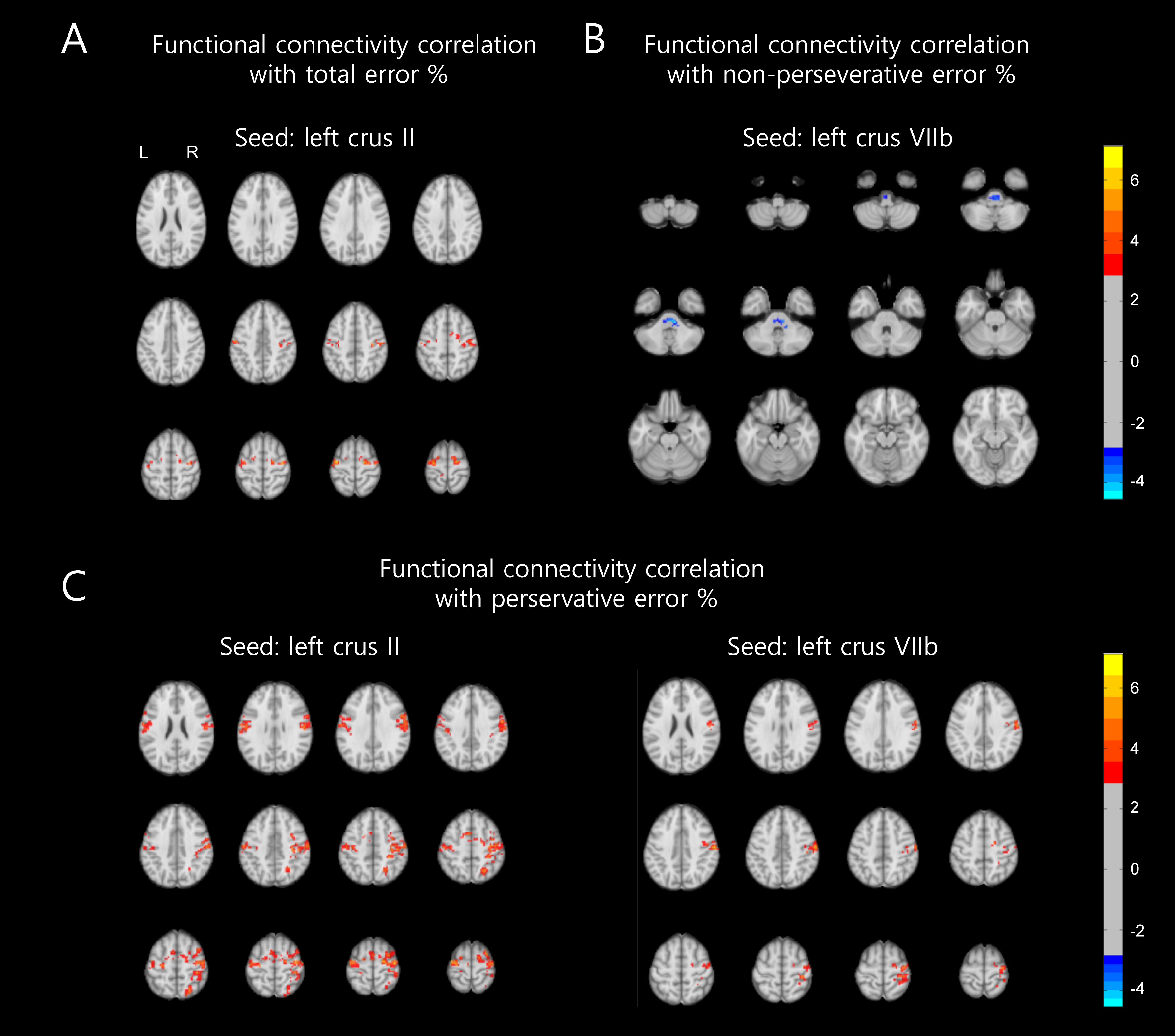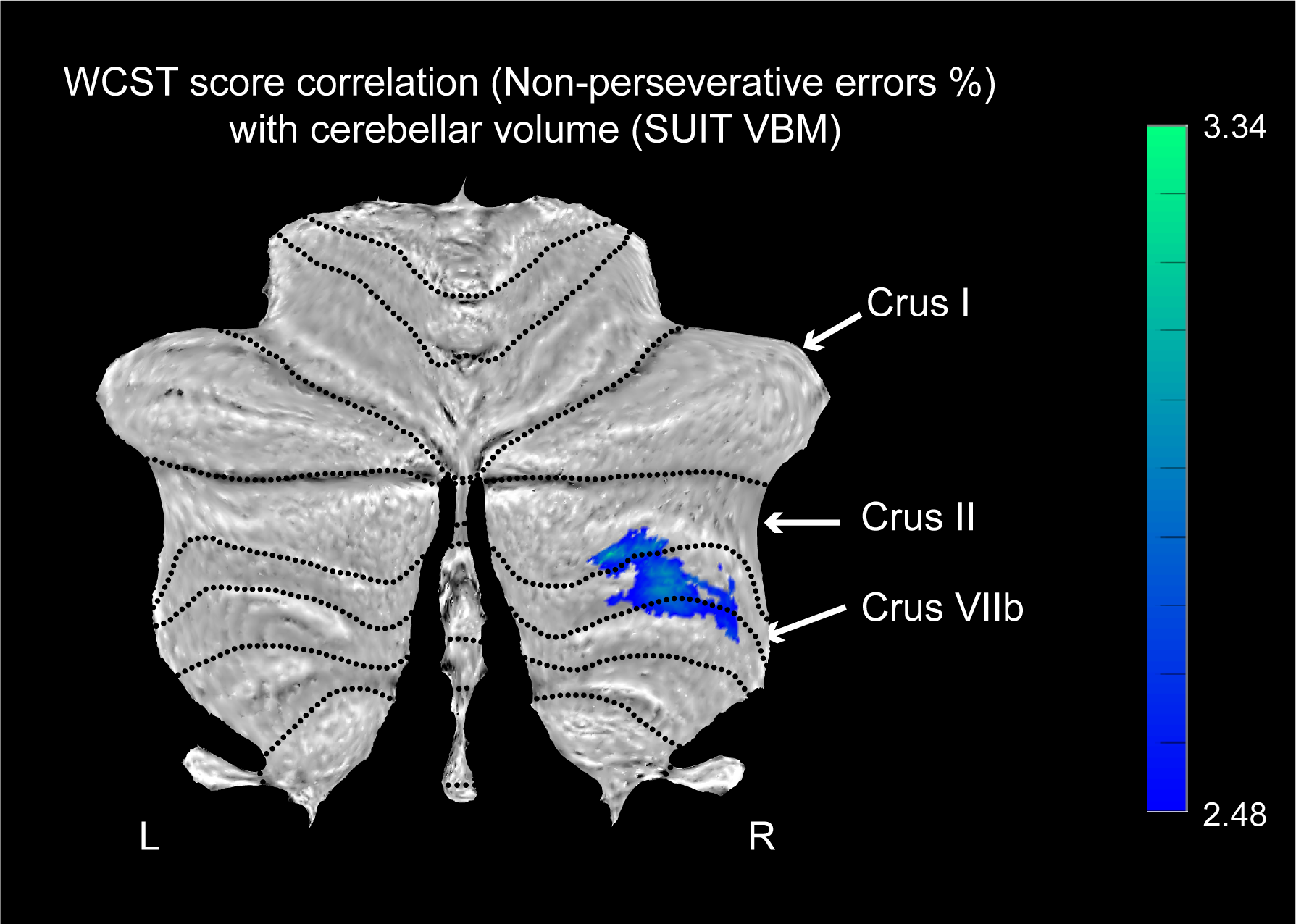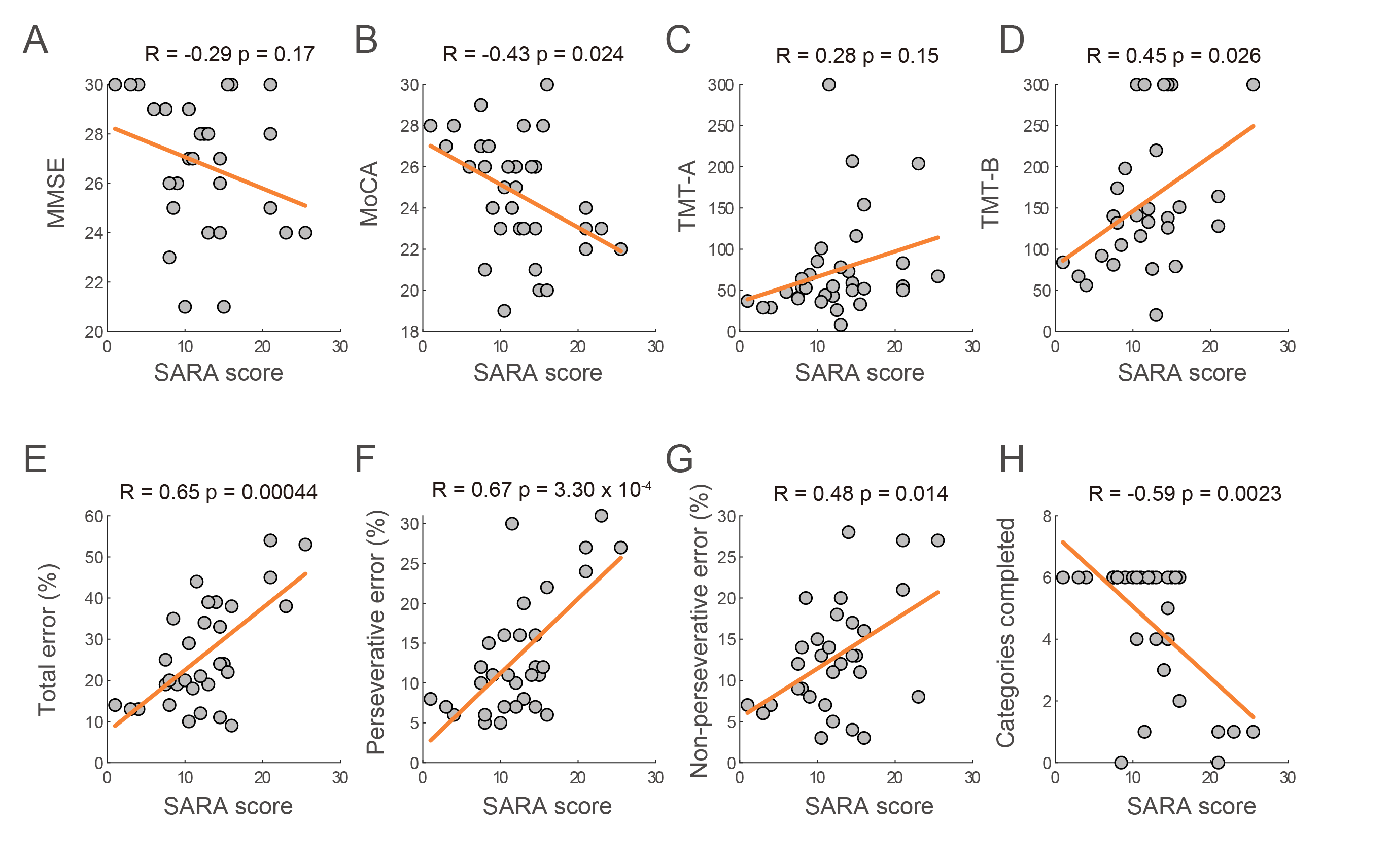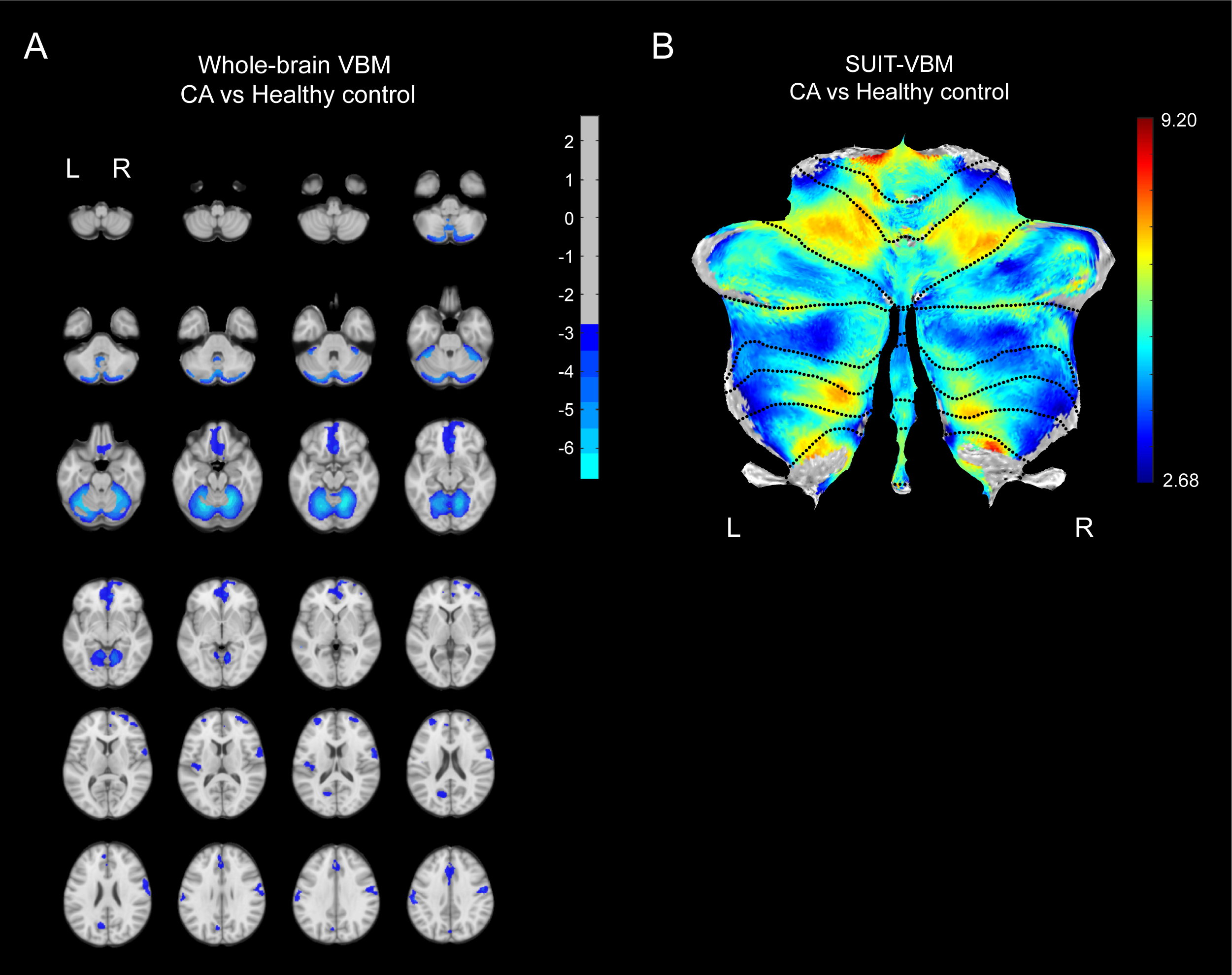Category: Ataxia
Objective: This study was to investigate the features of cognitive flexibility in patients with degenerative cerebellar ataxia, and to identify the pathophysiological correlates of cognitive dysfunction in relation to cerebellar cognitive circuits.
Background: There is a clinical unmet need for a neuropsychological tool that reflects the pathophysiology of cognitive dysfunction in cerebellar degeneration.
Method: We prospectively enrolled degenerative cerebellar ataxia patients with age-matched healthy controls who underwent 3T 3D and resting-state functional MRI (rsfMRI). All participants were evaluated with Scale for the Assessment and Rating of Ataxia (SARA) and neuropsychological tests including the Wisconsin card sorting test (WCST), trail making test (TMT), Montreal cognitive assessment (MoCA) and Mini-mental status exam (MMSE). From MRI scans, we analyzed the correlation of whole-brain volume and cortico-cerebellar functional connectivity with WCST performances.
Results: A total of 52 participants (29 ataxia patients and 23 healthy controls) were enrolled in this study. WCST scores, TMT-A and MoCA was impaired in ataxia patients (p<0.01) compared to age-matched healthy controls. WCST error scores showed a significant correlation with SARA score (p<0.001) controlling for age, sex and education years. In volumetric analysis, the cerebellar left crus II and VIIb atropy correlated with non-perseverative error % (Gaussian random field model, voxel-level p<0.01 and cluster-level p<0.05) in the ataxia group. In functional connectivity analysis, the connectivity between crus I, II and VIIb of the cerebellum and bilateral superior parietal, superior temporal gyrus was significantly alterd in ataxia patients(Gaussian random field model, voxel-level p<0.01 and cluster-level p<0.05). The functional connectivity between left crus II and VIIb of the cerebellum and dorsolateral prefrontal and superior frontal/parietal cortices showed positive correlation with perseverative error %. The connectivity between left crus VIIb and pontine nucleus/middle cerebellar peduncle showed a significant negative correlation with non-perseverative error% in the ataxia group.
Conclusion: WCST performance reflects hypoactivity of the cognitive cerebellum and disrupted cortico-cerebellar connectivity in nondemented patients with degenerative cerebellar ataxia.
To cite this abstract in AMA style:
JH. Shin, HJ. Kim, SY. Lee, WT. Yoon, SW. Park, SM. Park, D. Yoo, JY. Lee. Cognitive flexibility associates with atrophy and disrupted connectivity of the cognitive cerebellum in degenerative cerebellar ataxia [abstract]. Mov Disord. 2023; 38 (suppl 1). https://www.mdsabstracts.org/abstract/cognitive-flexibility-associates-with-atrophy-and-disrupted-connectivity-of-the-cognitive-cerebellum-in-degenerative-cerebellar-ataxia/. Accessed January 8, 2026.« Back to 2023 International Congress
MDS Abstracts - https://www.mdsabstracts.org/abstract/cognitive-flexibility-associates-with-atrophy-and-disrupted-connectivity-of-the-cognitive-cerebellum-in-degenerative-cerebellar-ataxia/




